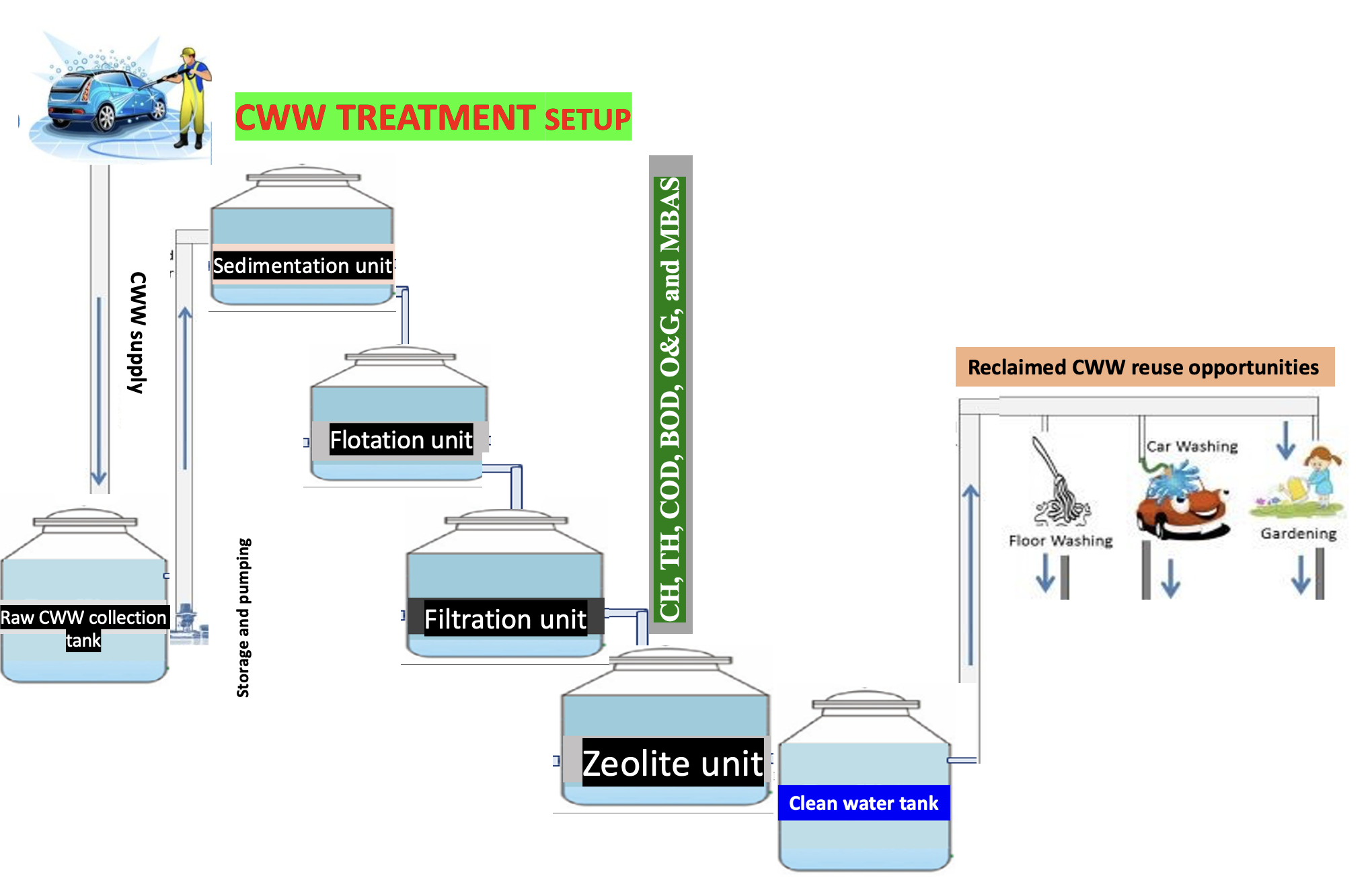
Jordan is the world’s second water-poorest country. Treating and reusing of wastewater are significantly important at the national level. This research aims to investigate the use of natural and modified Zeolite for the removal of Methylene Blue Active Substances (MBAS) and lead (Pb), major constituents of carwash wastewater (CWW) that can pose great health and environmental risks. Five samples were collected from each station. Then, physical, chemical, and biological tests were conducted for each sample including Alkalinity, Calcium Hardness (CH), Total Hardness (TH), Total Dissolved Solids (TDS), Total Suspended Solids (TSS), Chemical Oxygen Demand (COD), Biochemical Oxygen Demand (BOD), Oil and Grease, and MBAS. Raw wastewater was pre-treated starting with a settling step to flotation which precedes sand filtration and finally zeolite batch adsorption process. Results showed that the natural zeolite is effective in removing MBAS by 55.28% and 93.42% overall removal efficiency of the system. The best conditions of mixing time 30-minute, PH=6.8, and water temperature = 20oC, as this time the initial concentration of Sodium Dodecyl Benzene Sulfonate (SDBS), which is the main pollutant component of the CWW was decreased from 2.5 mg/L to 1.25 mg/L at the final step of treatment. Other contaminants like Pb were reduced during the treatment processes, with 46% removal by sedimentation unit. Reductions observed were alkalinity by 35%, CH by 75%, TH by 86%, COD by 67%, oil and grease by 99.6%, TS 62%, TSS by 76%, TDS by 18%, and BOD by 22%. Sensitivity analysis of the CWW treatment steps shows that the zeolite adsorption unit is the most effective, particularly for reducing parameters such as CH, TH, COD, BOD, O&G, and MBAS showing removal efficiencies up to 99%. Lifecycle Cost Analysis (LCCA) analysis indicates that the developed system is highly profitable and cost effective with a quick payback period, a high rate of return, and substantial net benefits over the lifecycle duration. Furthermore, this sustainable and eco-friendly technique, which utilizes a natural material, is considered one of the most effective methods for enhancing water resources.
Total file downloads: 27